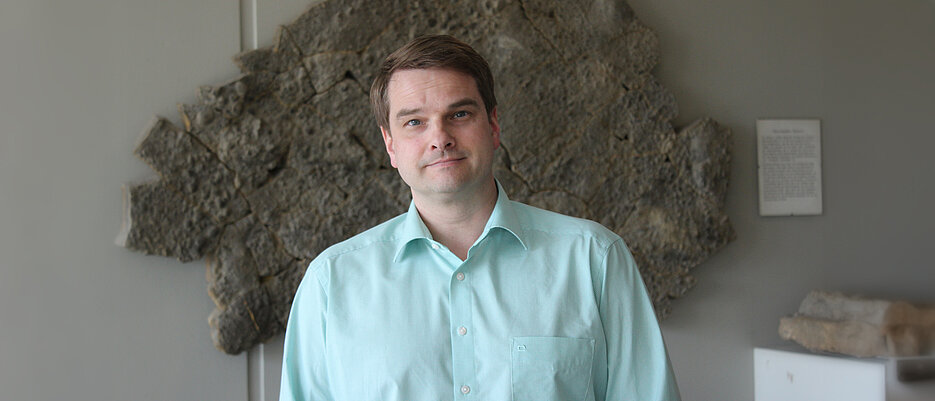How drastic are the consequences of climate change for our region? What can we still do about it? Renowned climate expert Heiko Paeth will answer these questions in a lecture at the University of Würzburg on 30 January.

Everyone in Lower Franconia is probably familiar with them: natural disasters such as the 2017 tornado over Kürnach, the heavy rainfalls in 2021 and the dry summer in the subsequent year. For Heiko Paeth, Professor of Physical Geography at the University of Würzburg (JMU), one thing is clear: "The accumulation of such extreme weather events in recent years shows that climate change has arrived long ago on our own doorstep." On 30 January at 7:30 pm, the scientist will give a public lecture in the Toscana-Saal at the Residenz Würzburg on how firmly global warming already has our region in its grip and what society will have to prepare for in the future. Admission is free. The lecture will be held in German.
Würzburg affected in two ways
"Climate change was long regarded as a problem of distant island states and desert countries," says Paeth. "Today, however, we know that we are also affected to an above-average extent." Studies show that northern Bavaria is a real climate hotspot - the climate here is warming even more than on global average. This is becoming a real problem for the urban population in particular. "Like other major cities, Würzburg is characterized by an urban heat island," explains Paeth. "In concrete terms, this means that the air here does not cool down as much overnight as in the surrounding area. Around the year 2070, we therefore have to regularly expect tropical nights here in Würzburg during the summer months, with a minimum temperature of up to 30 degrees Celsius."
Lecture also aims to highlight possible courses of action
In the future, society will have to invest heavily in mitigating the consequences of climate change, emphasises Paeth. "And this is not some distant dream of the future. These climate phenomena will affect people who are already living today!" On January 30, the focus will therefore also be on how everyone can take precautions and do something to cope with the consequences of global warming. "We are not defenceless at the mercy of this change, but have a certain scope of action," says Paeth. "From giving up excessive meat consumption to adapting our own mobility. But it is important that we act now."
An open discussion with the audience is planned after the lecture. Interested parties can then ask their own questions about climate change in Lower Franconia.
The lecture is part of the lecture series "Weather, Climate, Culture, History" organised by the center for "Medieval and Early Modern Times" of the Faculty of Arts and the Humanities. Further information can be found on the event website. Registration is not necessary.
About the climatologist Heiko Paeth
Heiko Paeth has been researching and teaching at the Institute of Geography and Geology at the University of Würzburg since 2006. His focus is on climate variability and climate change, seasonal climate predictions, climate modelling and statistics - particularly in Central Europe, the Mediterranean region and Africa. Among other things, he is currently investigating the consequences of climate change for agriculture in Franconia as part of the BigData@Geo 2.0 project. His project partners are Andreas Hotho, Head of the Chair of Data Science, and Stefan Dech, Head of the Chair of Remote Sensing at the University of Würzburg.






